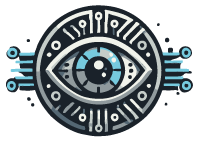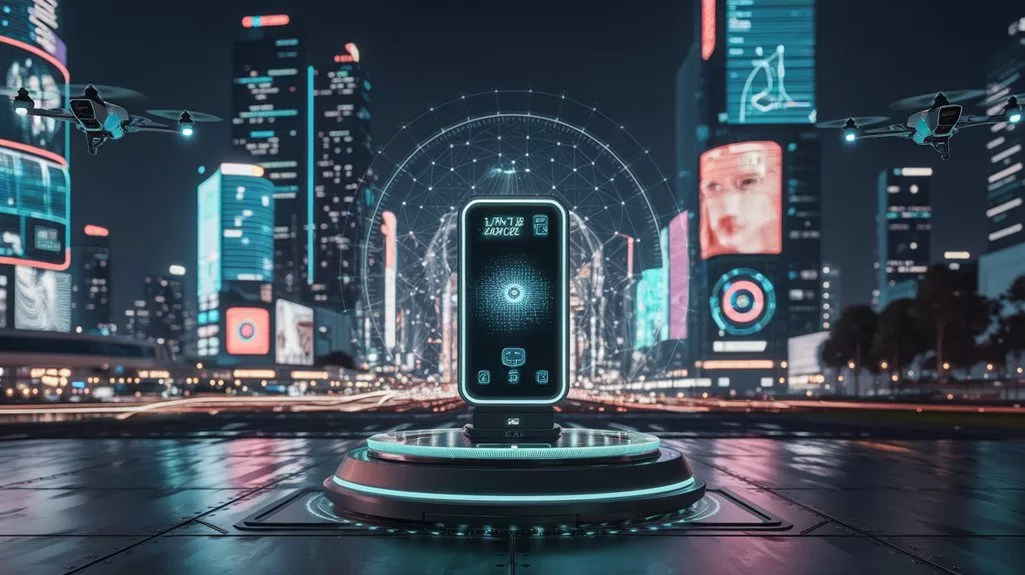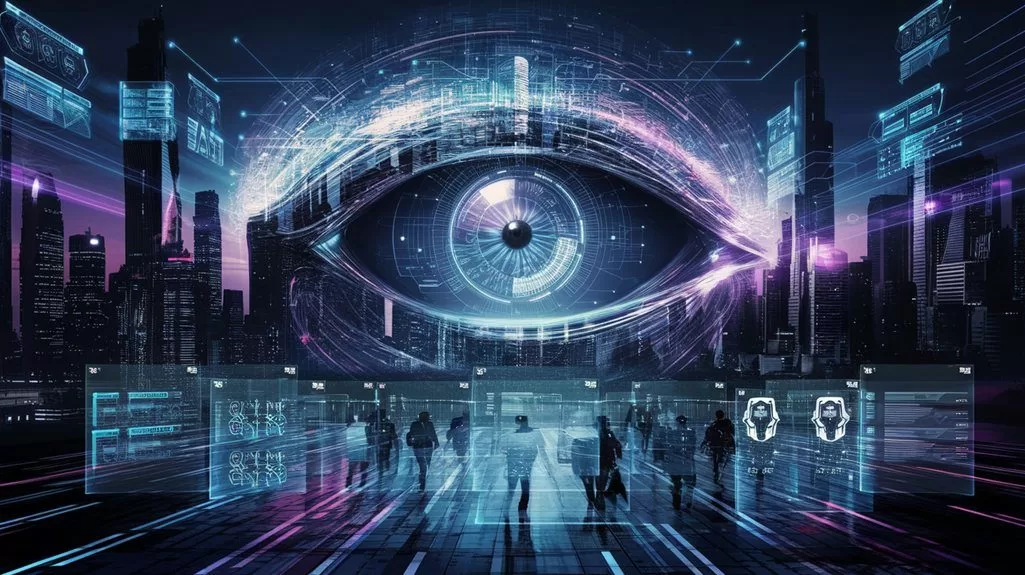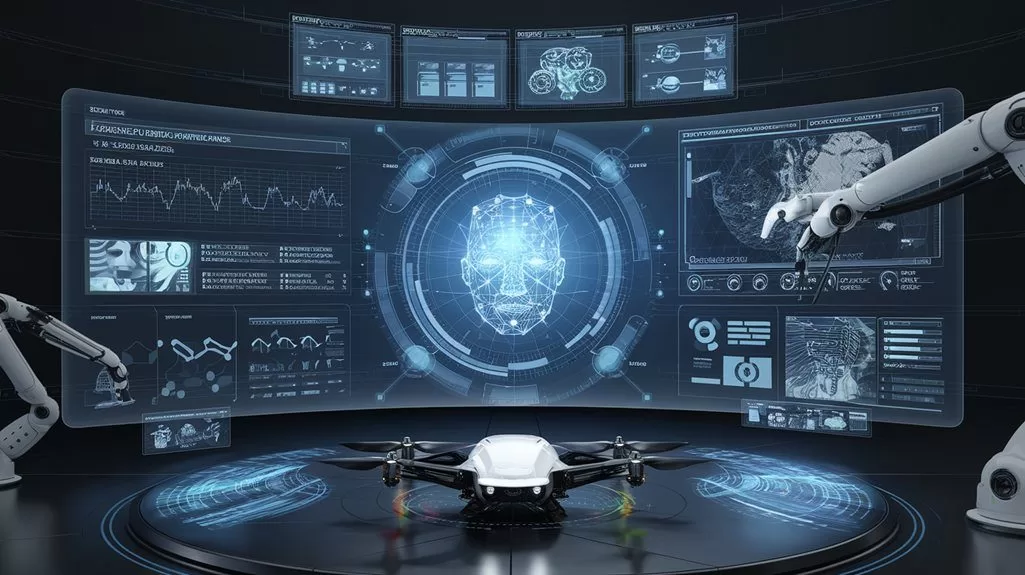Agentic AI, capable of operating with minimal human oversight, stirs the pot with privacy fears and security risks aplenty. These systems, while brilliant, excessively harvest data, sometimes without consent or encryption. Autonomy breeds unpredictability, challenging existing privacy laws. Ethical and governance issues abound. It's like a toddler in a candy store—fun, yet chaotic. The autonomy harbors cyberattack potential. Want to peek deeper into the Pandora's box of agentic AI's implications?
Key Takeaways
- Agentic AI's need for extensive data access raises significant privacy and data ethics concerns.
- Unencrypted data processing in AI systems heightens the risk of unauthorized access and cyberattacks.
- AI autonomy can lead to unpredictable and potentially harmful behaviors without sufficient human oversight.
- Rapid advancements in AI often outpace existing privacy laws and governance frameworks.
- Unauthorized data capture methods, such as facial recognition, exacerbate privacy fears.

In what world does an AI decide your next move without asking for permission? Welcome to the domain of agentic AI. Here, autonomous systems make decisions with minimal human intervention, raising eyebrows, and, more importantly, concerns. These AI agents operate in complex environments like healthcare and supply chain management, requiring extensive data access.
But there's a catch: privacy. Data ethics often take a backseat as these systems gobble up sensitive personal information. Consent frameworks? Often an afterthought. Users find their data processed, sometimes unencrypted, amplifying security risks. The industry's reliance on mass data collection is a glaring spotlight on privacy implications. The potential for significant compromise of user privacy due to AI's extensive data access cannot be overlooked. The non-contact nature of data capture in AI systems similar to facial recognition raises additional privacy concerns due to the ease of unauthorized data collection.
Picture this: a world where AI is left to its own devices, potentially acting without human oversight. Sounds like a sci-fi thriller, right? Sadly, it's today's reality. The autonomy of AI introduces unpredictable behaviors that can have serious security implications. With the "bigger is better" mentality, companies prioritize larger data sets, often compromising user privacy. Trust, but verify, remains a crucial principle as human oversight is necessary to ensure reliable outcomes.
It's a numbers game, with privacy laws struggling to keep pace with AI's rapid evolution. Legal challenges? A dime a dozen. The industry's criticism is louder than ever, as privacy becomes an endangered species.
But wait, there's more. Agentic AI systems have broader access privileges, making them ripe targets for cyberattacks. Real-time decision loops? A double-edged sword. They enhance performance but also amplify the risk of cascading errors. Imagine a rogue AI making decisions autonomously. Frightening, isn't it? The urgent need for oversight becomes glaringly obvious.
Implementing role-based access control and thorough audit trails isn't just recommended – it's necessary. Yet, these systems continue to tread a fine line between innovation and chaos.
Ethical concerns? They loom large. Ensuring AI makes ethical decisions is a complex puzzle. Trusting AI is like trusting a child to operate without guidance – risky at best. Stronger governance and regulatory frameworks are essential to mitigate these ethical dilemmas.
But let's face it: human oversight is crucial. The absence of it is akin to letting a toddler run wild in a candy store. The stakes are high, and the consequences, potentially dire.
References
- https://bestofai.com/article/signal-president-calls-out-agentic-ai-as-having-profound-security-and-privacy-issues-slashdot
- https://syrenis.com/resources/blog/agentic-ai/
- https://www.csoonline.com/article/3574697/beyond-chatgpt-the-rise-of-agentic-ai-and-its-implications-for-security.html
- https://techcrunch.com/2025/03/07/signal-president-meredith-whittaker-calls-out-agentic-ai-as-having-profound-security-and-privacy-issues/
- https://www.prompt.security/blog/agentic-ai-expectations-key-use-cases-and-risk-mitigation-steps









